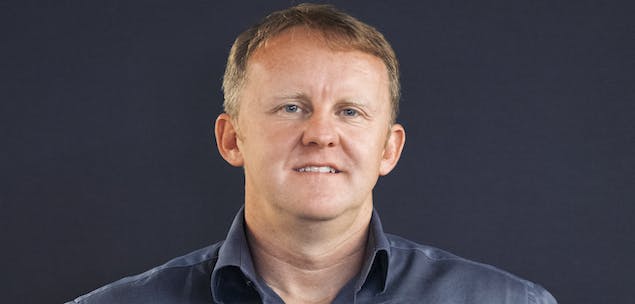It has been estimated that as many as 45,000 people in NSW have earned income through the sharing economy over the last 12 months – a hive of business activity that has contributed a massive $504 million per year to the NSW economy. And this is just one state. Once argued to be the peripheral ‘rogue entrants’ to the marketplace, sharing economy services are now very much in the line of sight when it comes to discussion on future economic development. The NSW government has recently welcomed the positive impact of the sharing economy, announcing that it would make regulations easier for sharing economy services. As the saying goes – money talks.
‘The sharing economy model is more attractive and supported than ever’
Chris Noone, CEO of Collaborate which operates Australia’s first and largest sharing economy services including DriveMyCar and MyCaravan, spoke to Dynamic Business about this shift in attitude. From ‘taboo’ business model to one that is accepted and entrenched in the fabric of the economy, the sharing economy model is more attractive and supported than ever, capturing the imagination of entrepreneurs across the nation.
Chris said “more people are using the sharing economy and seeing the benefits of wider choice and lower costs and they are telling their friends. Companies are also getting involved, especially by providing assets for rent because they see the economic benefits. Now, governments are not only embracing the concept, they are encouraging their own departments to use sharing economy services.”
Established in 2010, the founders of DriveMyCar were early pioneers of the sharing economy business model; equipped with little more than a solution to an old problem. Chris said “traditional car rental is too expensive and there are thousands and thousands of cars lying idle that could be used more effectively. The maturing of the Internet created an opportunity to deliver scalable effective solutions, easily.”
‘It makes clear economic sense’
Since 2010, DriveMyCar has paid out almost $5 million to vehicle owners and managed over 5000 rentals. With 600 vehicles registered on the platform, Chris commented that an increasing proportion are coming from corporate fleets. Prices through the service are up to 62 per cent cheaper than traditional car rental services. MyCaravan, the younger sibling established in 2014, seeks to bring cheaper prices to travellers by monetising Australia’s 500,000 caravans and camper trailers. Chris estimates that these recreational assets are sitting idle for an average of 50 weeks per year.
“Entrepreneurs enjoy solving problems and doing things better. The sharing economy business model provides enormous scope to solve the problem of under-utilised assets and deliver better value to customers,” Chris said.
“It makes clear economic sense.”
Clear economic sense it may be; but the most time-honored sharing economy entrepreneurs have had their work cut out finding their feet in the market. At the same time, regulators and consumers have been busy working out their position.
‘The challenges posed by the two-sided marketplace are disappearing fast’
According to Chris, creating a two-sided marketplace that meets the needs of owners and renters requires a great deal of effort to get the balance right.
“The challenge is to create an environment that encourages and incentivises each party to play their part in delivering a successful transaction, instead of relying on strict rules and enforcement. It’s the carrot approach, not the stick,” he said.
Chris added “balancing supply and demand is also tricky. You have to grow both sides simultaneously and make sure there is a wide choice of assets available and also high utilisation.”
As safety, security and regulatory concerns fade and the lure of choice and lower costs grows, more and more players have been enticed to the game. This would suggest that the challenges posed by the ‘two-sided marketplace’ are disappearing fast.
‘It has been a game of catch-up’
For the government, Chris says it has been a game of catch-up. While he acknowledged that it’s encouraging to see the NSW government supporting innovation through the growth of sharing economy services, he added “this was almost inevitable as consumers have been leading the charge to embrace these services.
“Clarification of existing regulations and the removal of those that are not relevant in the 21st century will help the industry to grow.
“All governments – State and Federal, need to recognise the duality of use of assets in the collaborative economy and make it easier and quicker for them to be switched from private use to commercial use, while still complying with any licensing, registration or regulation requirements.”
‘Future sharing economy entrepreneurs will inevitably find it easier’
The climate has changed. Skepticism and even sympathy for the plight traditional industries has almost certainly blown over. For the budding entrepreneur and those on both sides of the marketplace – curiosity is turning to action. Perhaps reflective of popular sentiment, Chris delivers a hard line:
“It all starts with the customer. If companies do not listen to their customers, they will lose them. The taxi industry has been spectacularly unsuccessful in its campaign. They did not recognise how much their customers disliked their service.
“Some more traditional businesses will suffer from the disruptive influence of the sharing economy. The competitive pressures are nothing new.”
Future sharing economy entrepreneurs will inevitably find it easier than ever before to ‘set up shop’ – credit to the likes of Uber, Airbnb and of course DriveMyCar who have spent the past few years perfecting the model and nurturing the market.

